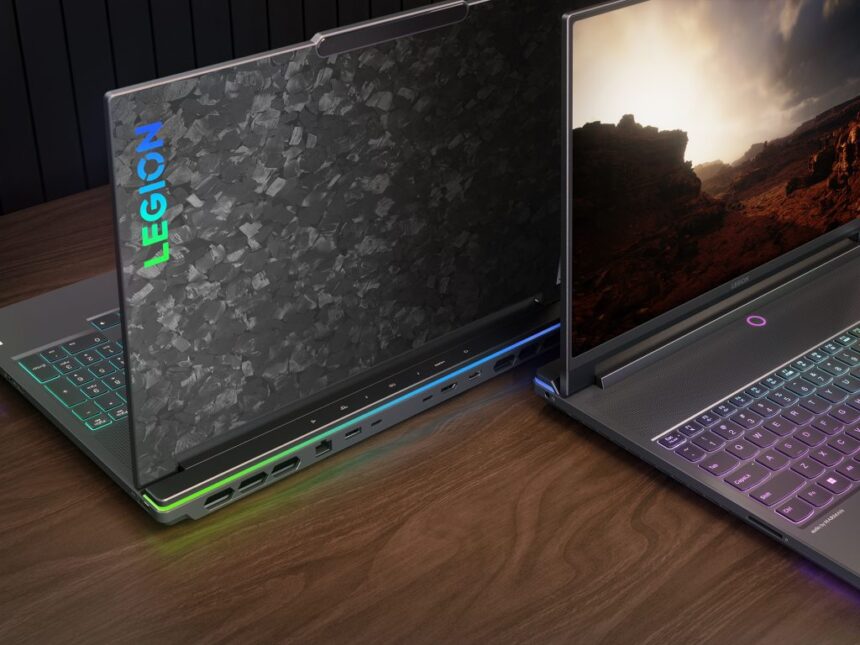We’ve been on the hunt for the perfect 2-in-1 laptop, and while no company has nailed it yet, Lenovo has its latest ThinkBook Plus Gen 5 Hybrid takes a unique approach. It recognizes the strengths of Android’s touch interface and Windows’ laptop interface, merging the two for the best of both worlds.
In laptop mode, the ThinkBook Plus Hybrid operates as a regular Windows laptop with an Intel Core Ultra 7 Processor, 32GB of RAM, a 1TB SSD, and a 75WHr battery. When you detach the display, it transforms into an Android tablet with a Qualcomm Snapdragon 8 Plus Gen 1 processor, 12GB of RAM, 256GB of storage, and a 38WHr battery. The balance in the version I tried was surprisingly good, and the conversion process was straightforward – just yank on the tablet until it disengaged, with no weird switches or special processes. Although the sample sometimes needed a bit of coaxing, this is expected to be resolved before the official launch in Q2 of this year.
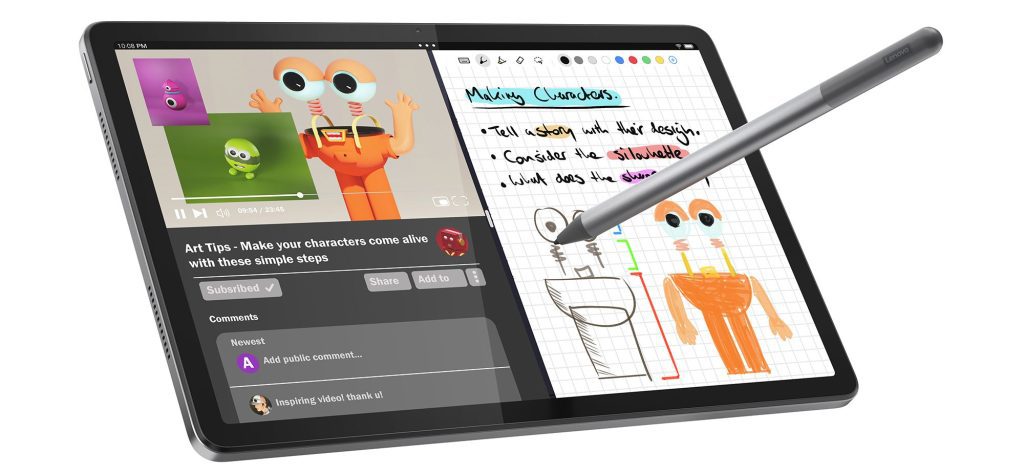
On the software side, communication between the two systems needs improvement. Currently, they don’t seamlessly interact, requiring manual sharing or moving of files across the OSes. Despite this, the ThinkBook Plus Gen 5 Hybrid is anticipated to ship in Q2 with a starting price of around $1,999.
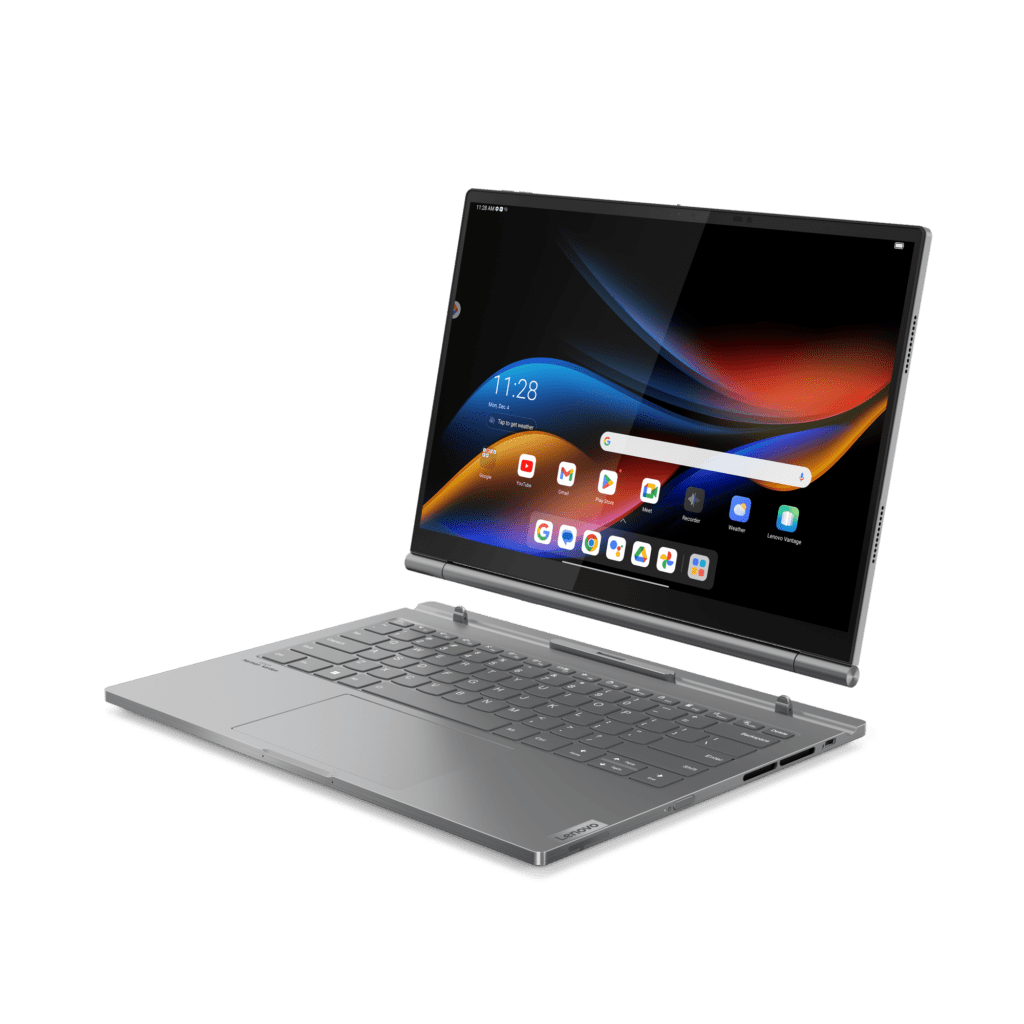
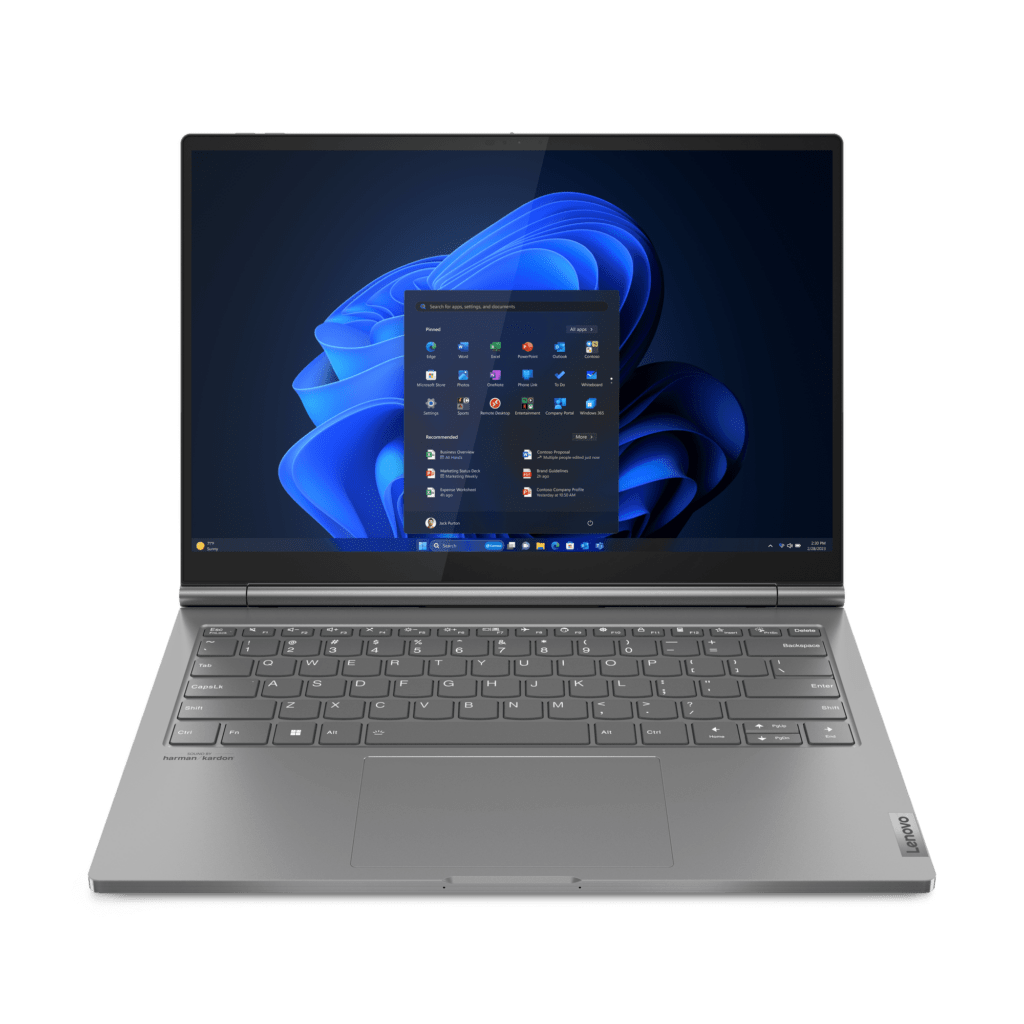
Beyond the 2-in-1, Lenovo showcased the next-gen ThinkBook 16p Gen 5, featuring magnets and pogo pins on the back known as the Magic Bay. This allows users to attach accessories like the new 4K webcam, Lenovo Magic Bay Studio. While the AI assistant that winks may seem like a gimmick, Lenovo aims to use AI to simplify managing laptop preferences and settings. The ThinkBook 16p Gen 5 hits the market later this quarter starting at $1,599, and the Magic Bay Studio will be available in April starting at $199.99.
Other notable releases include the ThinkBook 13x Gen 4, a lightweight 13-inch laptop starting at $1,399, and the refreshed Legion gaming laptop series introducing a new white color option. The Legion 7i, Legion 5i, and Legion Slim 5 boast impressive specs, with prices ranging from $1,399 to $2,099 and availability starting in March and April 2024. These releases mark a potential shift in gamer aesthetics, moving towards a more subdued look while maintaining high performance.
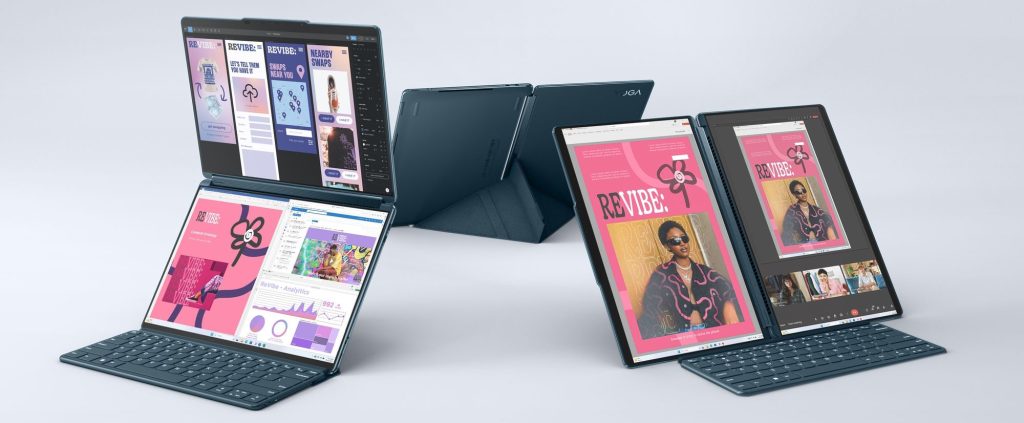
AI-powered Assistive Technology Solutions
Lenovo was also a key collaborator on groundbreaking accessibility solutions unveiled by the Scott-Morgan Foundation at CES. The new technologies, aimed at empowering people with severe disabilities, include: a hyper-realistic AI avatar developed with DeepBrain AI to preserve personality and power communication; an on-device, personal large language model (LLM) for predictive text created by Lenovo’s AI Innovation Center; eye-tracking hardware tested on Lenovo devices; and an integrated, AI-optimized, multi-modal input platform. Pioneering assistive technology is at the core of Lenovo’s ongoing sponsorship of and collaboration with the Scott-Morgan Foundation and commitment to delivering smarter technology for all.
Experience the Dawn of the AI Era
Lenovo is making AI tangible and more accessible for everyone, transforming it from a distant concept into a practical, everyday tool that empowers whenever, and wherever.
For more information, visit Lenovo’s CES 2024 Press Kit on StoryHub for press releases, images, and more details on all of Lenovo’s new announcements.



